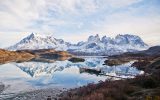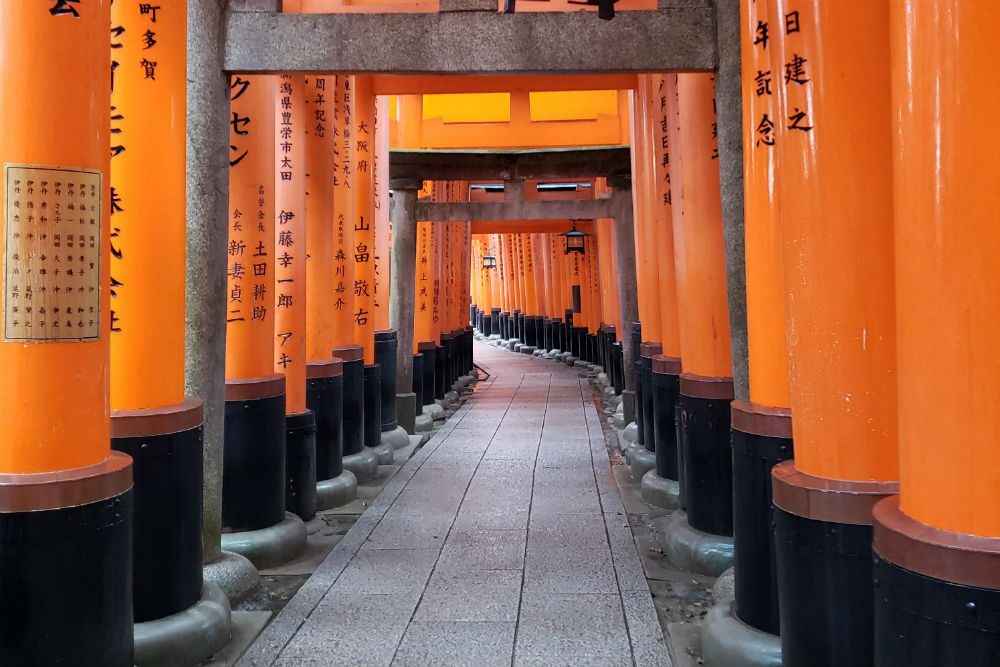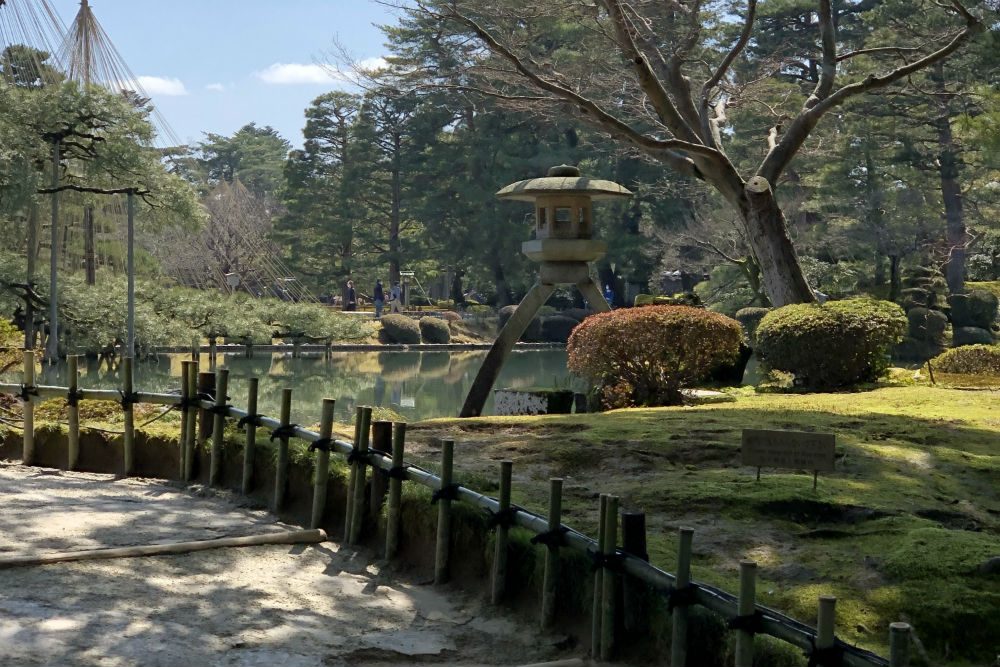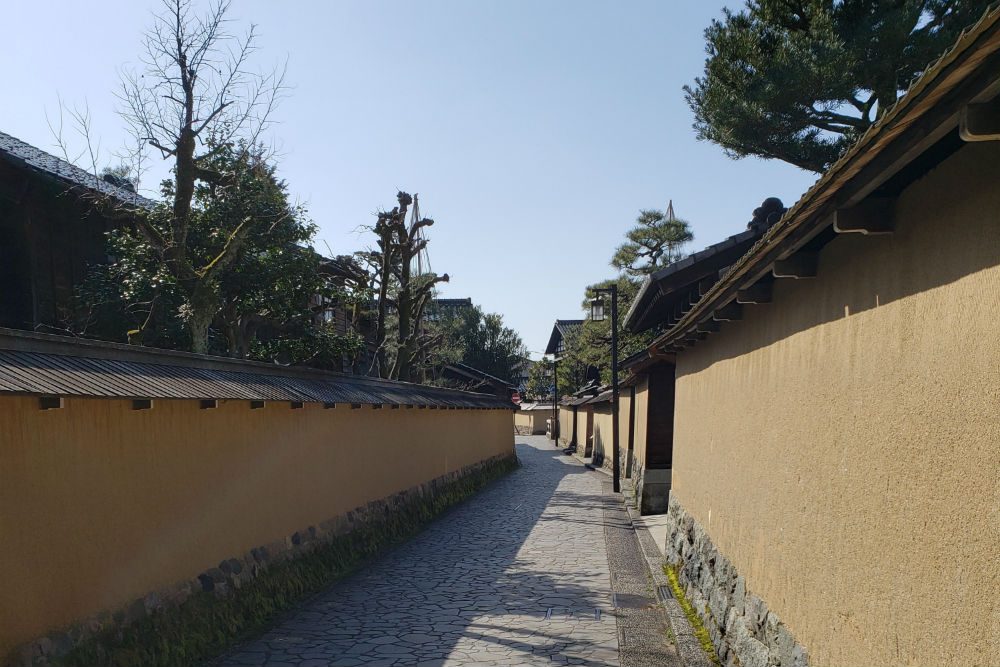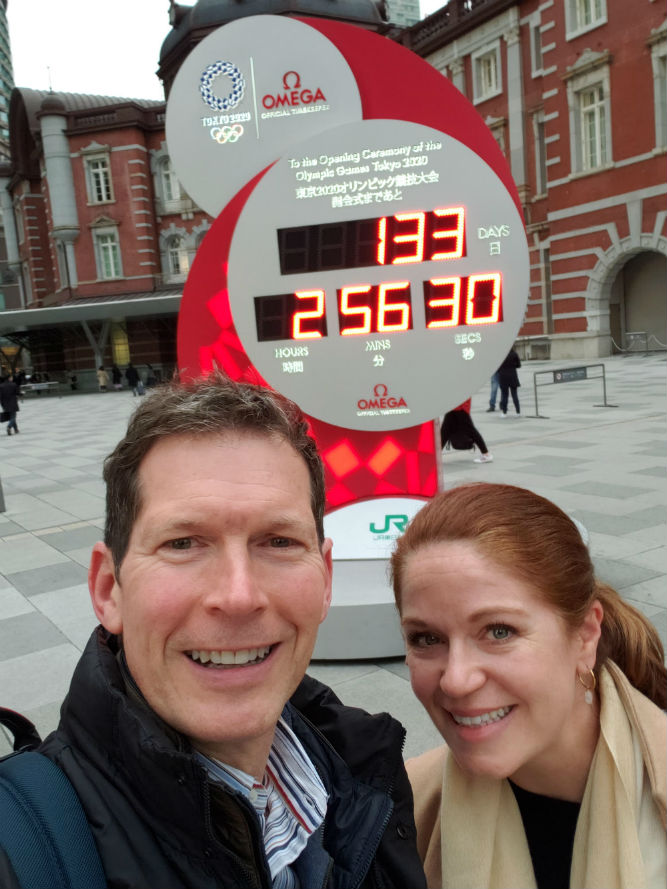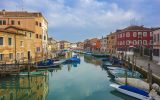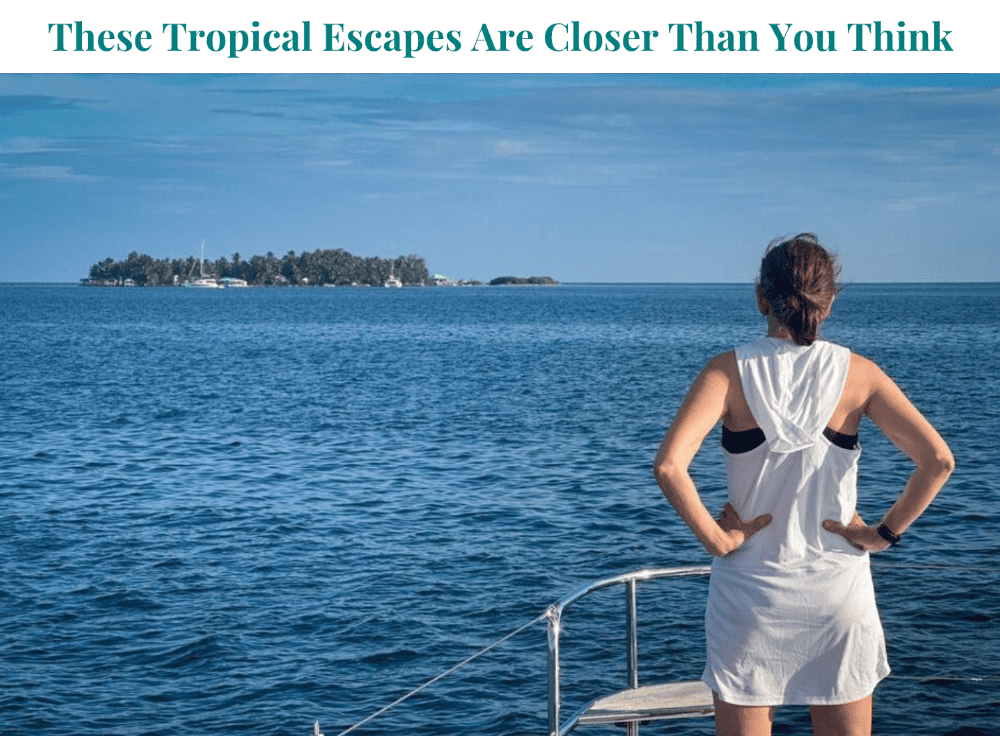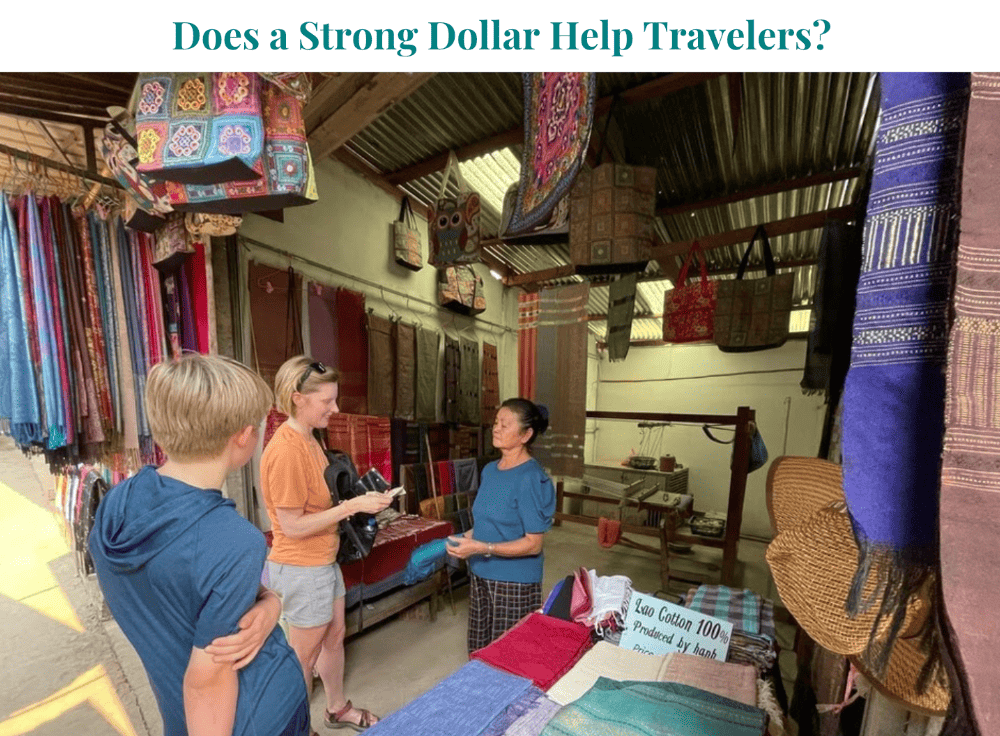It’s a proven fact that the anticipation of a pleasure trip does wonders for a person’s sense of well-being. Not only is this boost of happiness backed up by nearly every person who has ever looked forward to a vacation, but it’s also confirmed by scientific studies. Isn’t it nice when the thing you love to do turns out to be good for you?
For now, though, the thing that’s good for all of us is to stay home—and yet we can still simultaneously benefit from some much-needed optimism about the months to come. That’s why we’re inspired by these frequent travelers who are planning adventures for the future, tapping into the joy that travel brings them in order to give themselves something wonderful to daydream about during this difficult stretch. (And, at the same time, they’re making an investment in the locations, the locals, and the small local businesses that will need so much of our support to recover.)
What about you? What places and people are you eager to visit, near or far, when the world is ready for us again?
A Month in Uganda and Ethiopia, January 2021
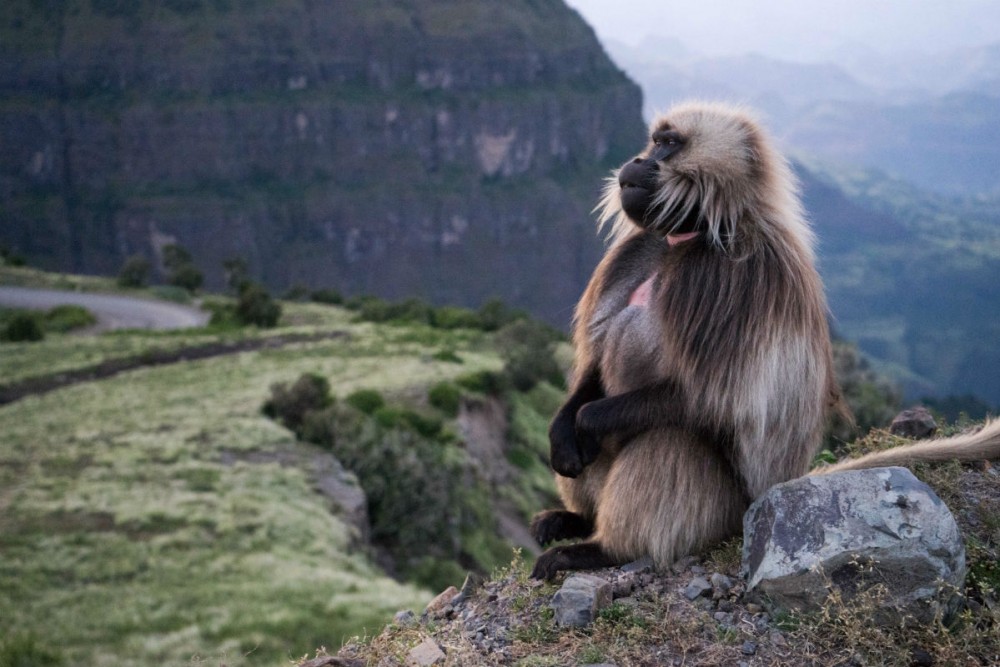
A gelada, or “bleeding heart” baboon, in Ethiopia. Photo: Paul Callcutt
“My wife and I are retired and live in the Hamptons full time. We like to go away for a month or two every winter to get away from the cold weather. Over the past few winters we’ve traveled to Chile, Argentina, Uruguay, Myanmar, Australia, New Zealand, and Fiji. We were in Kenya and the UAE last year, and we wanted to go back and see more of the real Africa, not just the safari type of Africa. Plus we’ve always wanted to see the gorillas and chimps. Having just returned from Antarctica this February, we needed to book our next winter trip. So we looked on Wendy’s WOW List, contacted Cherri and started planning two weeks in Ethiopia and two weeks in Uganda for January 2021. Coronavirus kept getting bigger and bigger, but we thought: It’ll be gone by next winter, and if it isn’t, we’ll postpone it. Will we lose some of our deposit? Maybe? But we have to have something to look forward to. I’m optimistic. I have to be planning something or else I’m just wasting time waiting. I can’t just wait; I have to be moving forward.
When we firmed things up on our itinerary, and Cherri asked for a deposit, I asked if the on-sites would consider taking a reduction in the deposit because I do still have some concern. She said, let me ask—and yes, they were willing to take less. I like supporting them and keeping them going, but I also would like to have some consideration back on this end because I may end up losing my deposit.
What do I mean by “seeing the real Africa”? To me, it means meeting different people, eating their food, sharing activities together, learning about how they live so I can learn from them and enrich my life, and hopefully, give the local people a little something of myself as well. On our itinerary, we’re going to meet with local tribal people several times, we’re going to have lunch with the chief rabbi of Uganda, and I’m hoping to arrange with Cherri to do some charitable work with schools as well. I’m hoping and expecting that coronavirus is going to be history by the time we’re ready to go. Is that wishful thinking? Well, I’m an optimist. Will I travel if coronavirus is still rampant? No, I’m not going to put myself or my wife in jeopardy. I’m pretty risk-averse although my wife and I like to travel off the beaten path. I remember going to the Soviet Union in 1980 when nobody traveled there at that time, Bhutan just after it opened to tourism, Sri Lanka just after the war ended, and most recently to the Rakhine province in Myanmar. People would always ask why are you going there? I said for fun. They thought I was crazy. Am I?”
—Ron Klausner, Southhampton, NY
Journey to Antarctica over New Year’s
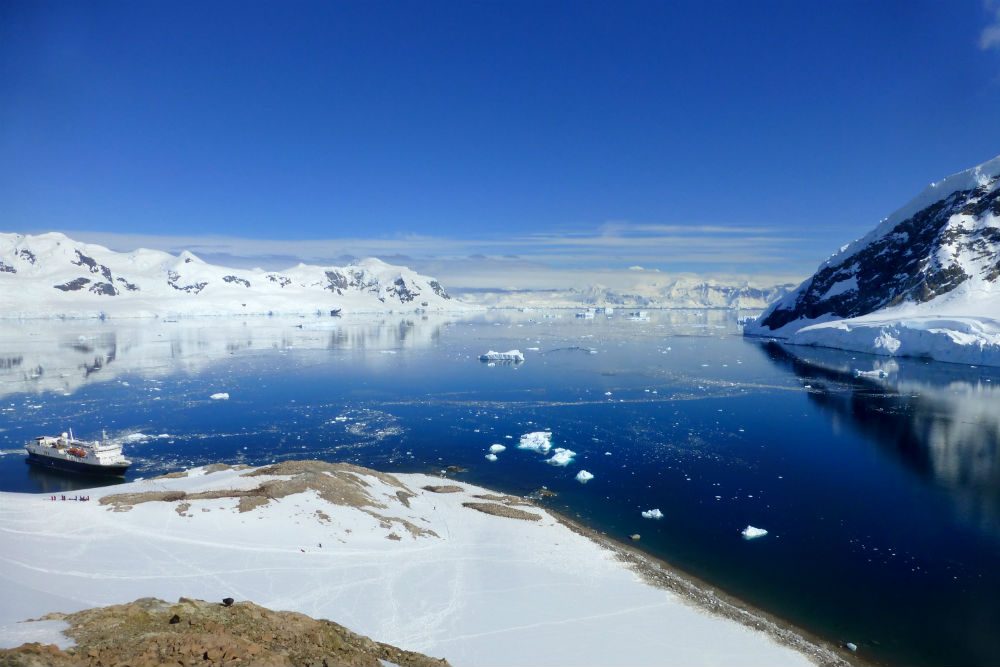
National Geographic Explorer ship in Neko Harbor, Antarctic. Photo: Aabby Suplizio
“I thought, I’m going to look around for what I’m going to do when this turns around, and Antarctica has always been on my list. I had seen in The New York Times in January about how to do Antarctica either by cruise or by fly-cruise. I was intrigued by the fly-cruise option, so I naturally went to The WOW List and found Ashton, and I set up a call with him to sort out my bias that flying and getting over the Drake Passage and avoiding the turbulent water is a more comfortable way to do it. I learned from him that yes, it is, but that those ships sell out immediately because there’s a very small window when the seas are okay to go, so you have to book this 18 months in advance—and I wanted to do it for this coming Christmas. [Laughs.] So that instilled great urgency in me, because there was scarcity.
I felt bad about talking to Ashton, who’s in the hot zone of Seattle, while he had customers he had to help get home. But he immediately called his contacts and found one cabin available and had them hold it until he and I had our conversation a couple days later. I wanted to do the trip when there was a prime possibility for calm waters and best conditions, and so in the midst of this pandemic, Ashton was able to make this happen. His extreme knowledge from having been there more than 50 times, and his knowledge of the ships and suppliers, just cut through it super fast. So in a conversation with him for maybe an hour, I came away with great confidence that I was in the hands of someone who knows his market. And because of that, I was able to say, Let’s book it. And obviously you can’t do anything about flights because who knows what airlines will be left. But I have a great faith that by December there will be some level of normalcy, and we’ll have this amazing trip to look forward to. And the clincher was that payment isn’t due until July. That made it easy to decide to book and hold the spots.”
—Barbara Schoenfeld, Providence, RI
25th 26th Anniversary Trip to Greece
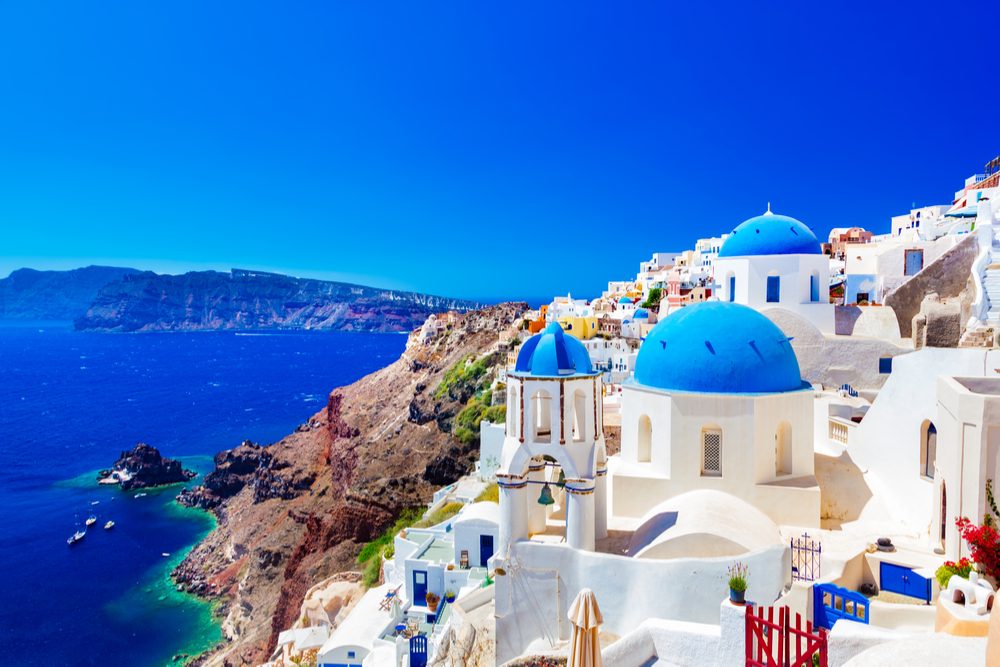
Oia town, on Santorini, is famous for its blue-domed churches and white houses overlooking the caldera. Photo: Shutterstock
“I actually had a trip planned for early April. It was supposed to a celebratory vacation in Greece for my 25th wedding anniversary, and we were taking our children with us. We didn’t want to cancel and have instead postponed the trip to spring 2021. Now, it’ll be my 26th anniversary trip! If you have the option to postpone a trip rather than cancelling, seriously consider postponing it. I know that cash is becoming dearer and most people would prefer a refund, but if it’s possible, try getting a full credit to apply at another point. This will help keep travel specialists and agencies afloat and it will give you something to look forward to. For example, Mina and Faye have given us a lot of flexibility about when we want to reschedule our trip, and this has been comforting.
As to when will I begin to travel again? I am already starting to make travel plans for July/August. Given the state of affairs, I am mainly considering local trips— potentially a region we are curious about or even a national park. Regardless of how far I wish to roam, the goal is to not stop planning to travel and to think out farther than just a few months.
Planning a trip reminds you that there is life after COVID-19. It gives us something to look forward to and reminds us that there are still beautiful places to go, new people to meet, and meaningful experiences ahead. Even if you aren’t planning on putting down a deposit, just thinking about a trip and doing some initial research provides a good escape.
If we think beyond COVID-19, there are two ways to consider what travel may be like in the not-too-distant future. Travel will revitalize many local economies dependent on tourism, but there is also an opportunity to consider sustainable tourism in general. There have been many news stories about how smog levels are lower and how wildlife is more easily seen. In a post-COVID world, is there an opportunity for us to consider how travel considerations may better balance what’s an acceptable number of people traveling to one place at one time vs. simply trying to recoup to pre-COVID economic conditions? As a frequent traveler, I’m trying to be sensitive about this balance.
I do think it is still worthwhile to research and plan trips for the future. We should remember that this stressful time period is not just simply about staying safe and well, but also about staying sane. Using some time to think and learn more about places we would like to go may be helpful for our mental state and mood.”
—Yin Ho, New York City
Seeing the Solar Eclipse in Chile
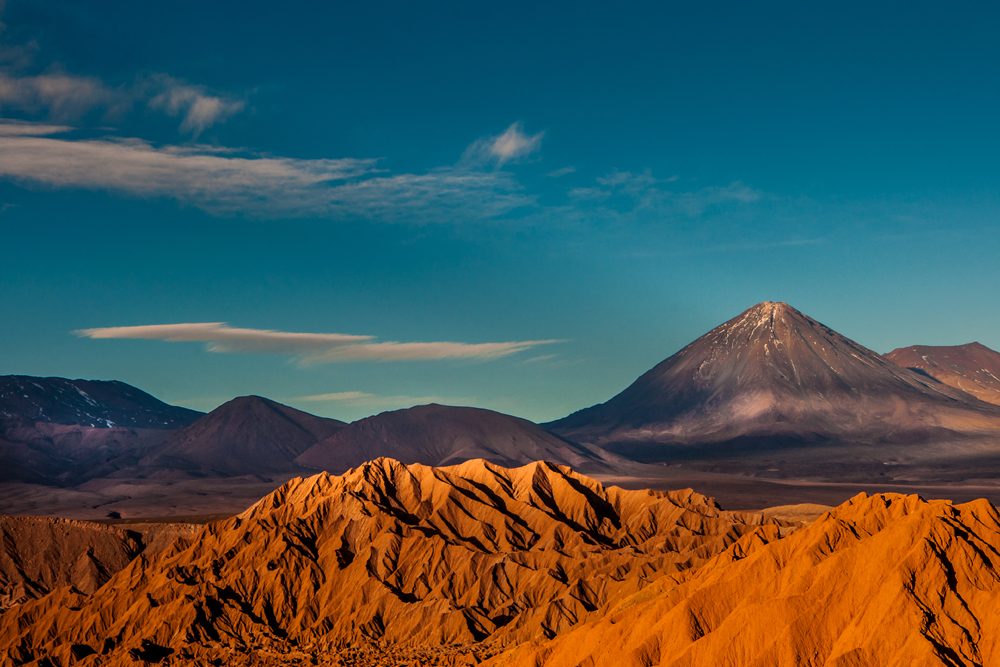
The Atacama Desert of Chile. Photo: Awasi
Robert: “In December we’re going to Chile to see the solar eclipse. We’ve been to Peru, Ecuador, Argentina, and Brazil, and we want to add Chile. Two years ago we went with our son to see the eclipse in Nashville, but just a few minutes before totality, the cloud cover came over, and we didn’t see it. So we have been talking about this Chile trip with him for close to two years, and hopefully it will pan out. We also want to go to the Atacama Desert, Easter Island, and to the Chilean side of Patagonia—we’ve seen it from the Argentine side. That’s the plan.”
Patrice: “I think having this trip helps my mental health. It’s something to look forward to, to help look beyond the moment where there’s so much that’s unknown and uncontrollable—the belief that there will be something better in the future.”
—Robert and Patrice Reiss, Hermosa Beach, CA
Two Cruises to Two Different Continents
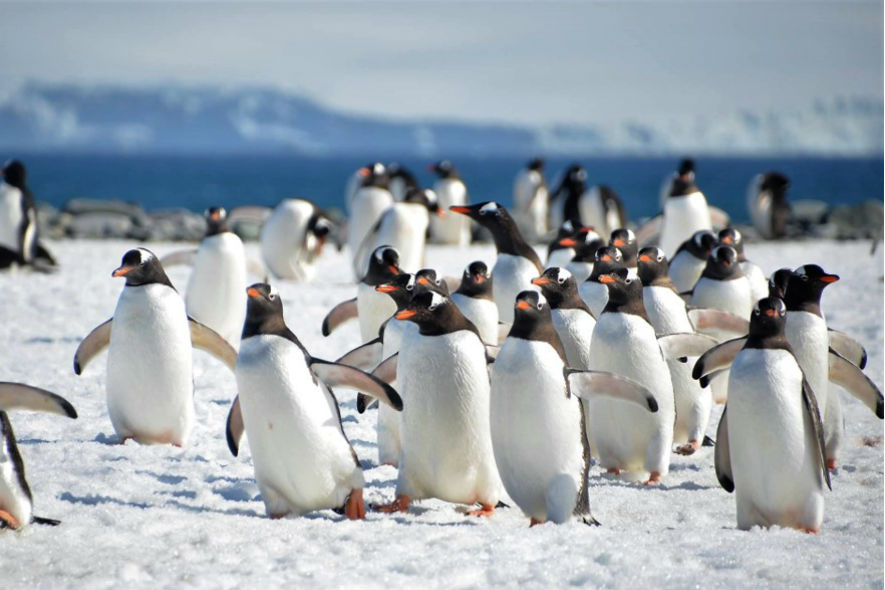
Gentoo penguins in Antarctica. Photo: Jennifer Santoyo
“We are currently booked on two cruises, both on Seabourn. The first is in January 2021 to Antarctica. The second is a replacement for a cruise we had planned in Spain and Portugal this May (which we canceled, of course). We moved that to a cruise in October 2021 along the western European coastline. The May cruise we had to cancel was to have been when we received our WOW Moment benefit. It’s disappointing to have to wait for another trip to experience that, but still another thing to look forward to in the future.
We’re both in our seventies, so why risk it? Especially a cruise. I know Seabourn does a very good job, though you still have to realize that it’s a petri dish. But Antarctica has been on our bucket list for a long time. The polar ice caps are melting, and we want to see them before they go away and you can’t go there anymore. Also, there are penguins! [Laughs.] Our granddaughter, from the moment she could recognize things, has had a total fascination with penguins. She’s not going, but we’re going to load our cameras with penguins for her.
Seabourn has done a nice job of refunding and giving credits. We were in a category where we were entitled to a 50% refund, and the day we decided to cancel the Spain/Portugal cruise, Seabourn came out with the announcement that the other 50% could be applied to a future cruise. I don’t know what the policy will be as we draw closer to the cruise date, but I will be very aware of our cancellation deadlines, and we’ll have travel insurance with Cancel For Any Reason coverage, so those sorts of things are sustaining my thoughts. Mary Jean’s staff did a very good job; I can’t say enough good about them. They do onboard benefits for us and adjustments or other perks sometimes, but the best thing is that they work on their clients’ behalf to handle this well.
As far as concerns about cruise ships, I have some comfort in knowing the first cruise isn’t happening until January. If we come to feel that it’s problematic, we probably will not go. But we’re optimistic. I mean, why not? We want to get on with our lives and exploring the world, and this is part of our goal as we take more personal time for ourselves. Once a traveler, you’d like to always be a traveler. We realize there’s uncertainty about what comes next and what changes there will be that impact us as travelers and which cruise lines will survive. But even if we have to give up travel because this doesn’t go away for two or three years, we’ll still be booking!”
—Susan Bland, Seattle
A Nature and Hiking Getaway to Colombia
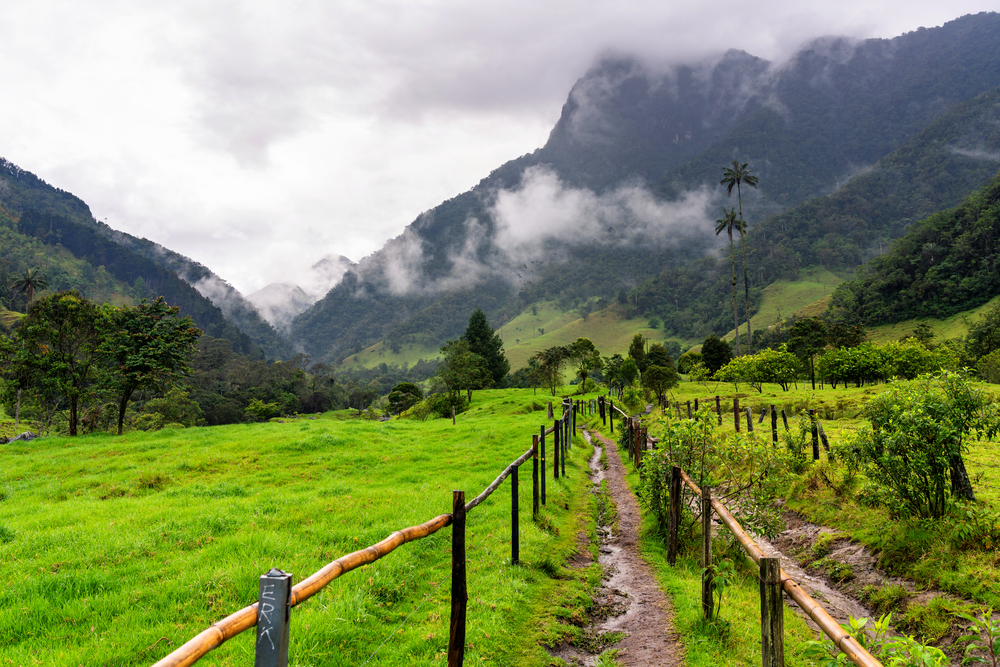
A view from the beginning of the hike towards Cocora Valley. Photo: Shutterstock
“I recently put a deposit down on a trip to Colombia for next February. We do a yearly trip, and I always make plans a year in advance in order to take advantage of my frequent-flier miles. After finalizing my itinerary with Marc and Boris’s team, I was asked to put down a nonrefundable 50% deposit. I was hesitant to do so, especially given the current pandemic. The agency got back to me and suggested a 25% deposit and also said that if I had to cancel, they would hold the credit for 12 months. I felt this was reasonable. My husband and I love to travel, but given that we had done a ‘big trip’ this past November to Japan, we felt we wanted to go somewhere closer to home. We have discussed Colombia as a destination for a few years, having heard it is now safe. We also have friends who recently went and had a wonderful trip. In addition, the JetBlue nonstop flight to New York from Cartagena (under 5 hours) is a real plus. We will be in Bogota for two nights , then three nights in the coffee region where we will hike, go birding, and enjoy nature in a beautiful setting. We will then travel to Cartagena for three nights.”
—Judith Luskin, Westchester County, New York
A Burgundy Barge Cruise, Southeast Asia, and Madagascar
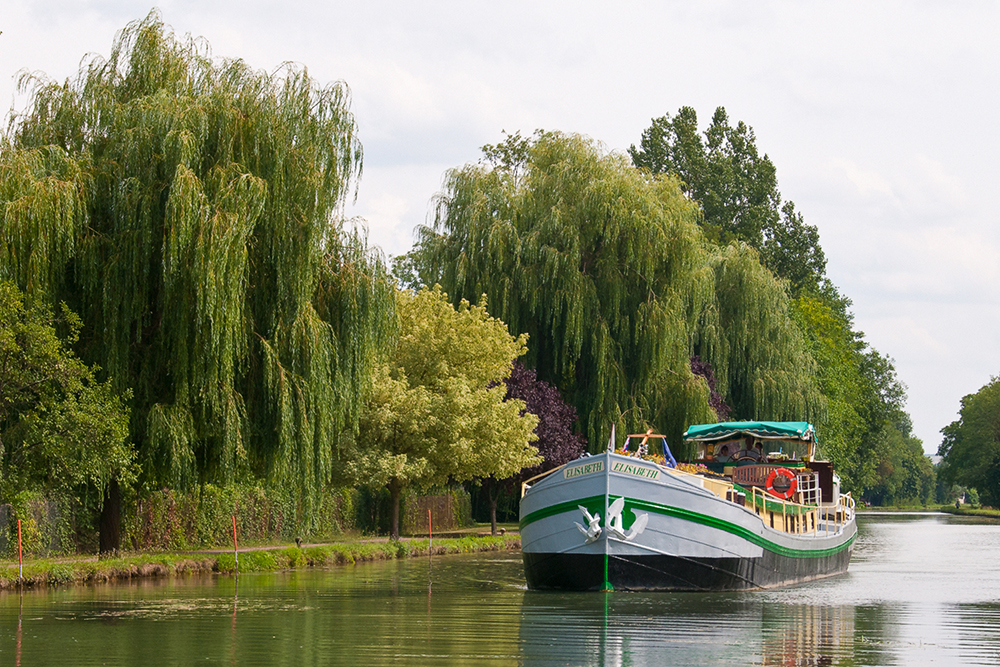
Barge Elisabeth in Burgundy. Photo courtesy Barge Elisabeth.
“I’m hoping beyond hope that our barge cruise in Burgundy happens in July. A group of friends did a Scotland barge trip last year, and I just loved it. I also have a big trip that I organized through Wendy’s List for November. I’ve pulled together eight friends, and we’re going to Thailand and Cambodia. We’ve been planning it for a couple years, and I’m optimistic that things will be fine. I think we’re going to have a WOW Moment, and Kae [from Daniel Fraser’s team] is amazing; I’ve been loving working with her. We have a whole itinerary, and when I read it, I get all excited. The most exciting two things for me are the floating market and the elephant hospital in Lampang. As for 2021, the I-can’t-wait-to-do-it trip is hopefully Madagascar. I love Africa so much (I’ve been there five times) because, for me, it’s wildlife and water—that’s the stuff that gets me way more interested than cities.
I think that having these trips in the works helps by putting a boundary on what we’re going through. I’ve seen people get really panicked that it could be this way for years. So my scope of looking at it is controlled by when the next trip is. And for me, at least in my head, as soon as I know that we’ll be okay for November, it’ll be fine. If I have to delay the July barge trip, I’ll be somewhat concerned, but I’ve already thought through the mechanics of that, so I’m already adjusting. The future trips put the scope of what I’m looking at into something reasonable. It really helps.”
—Helene Bard, Washington, D.C. metro area
Natural Wonders in the American West and the Galapagos Islands
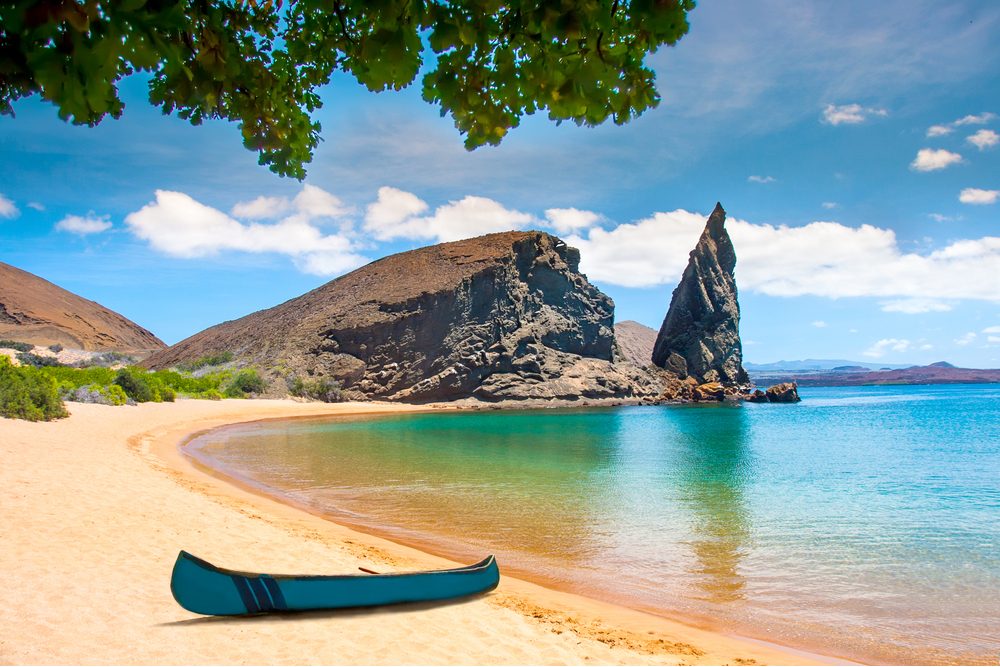
The clear blue water of the Galapagos Islands, Ecuador. Photo: Shutterstock
“My family is spending quality time together during this pandemic talking about where we’d like to go for our next big family trip and why. Tim and I like the idea of river rafting out West: It would get the kids off their electronic devices completely—which would be a huge relief after all the time they’re having to spend on their devices now, what with online schooling and musical rehearsals via Zoom and having to connect with friends virtually, usually through computer games. Honestly, moving stress-free at the pace of the river, through wilderness areas with plenty of fresh air, and with almost no surfaces to worry about touching, sounds like what the doctor ordered.
We’re also talking about the Galapagos Islands. They’re so remote—practically in the middle of nowhere—and the animals and beaches and landscapes won’t have been affected by the coronavirus. Also, the Galapagos is one of Earth’s fragile ecosystems that must be seen sooner rather than later (I was actually there 25 years ago, but Tim and the kids haven’t been), and I think this pandemic is reinforcing the importance of seeing the world’s must-see places when you can because you never know when they will suddenly be closed off. Normally a trip to the Galapagos needs to be planned at least a year ahead anyway—especially if you want to travel during a school-break period—so planning a trip there now for 2021 actually seems perfectly reasonable.”
—Wendy Perrin, Short Hills, NJ

